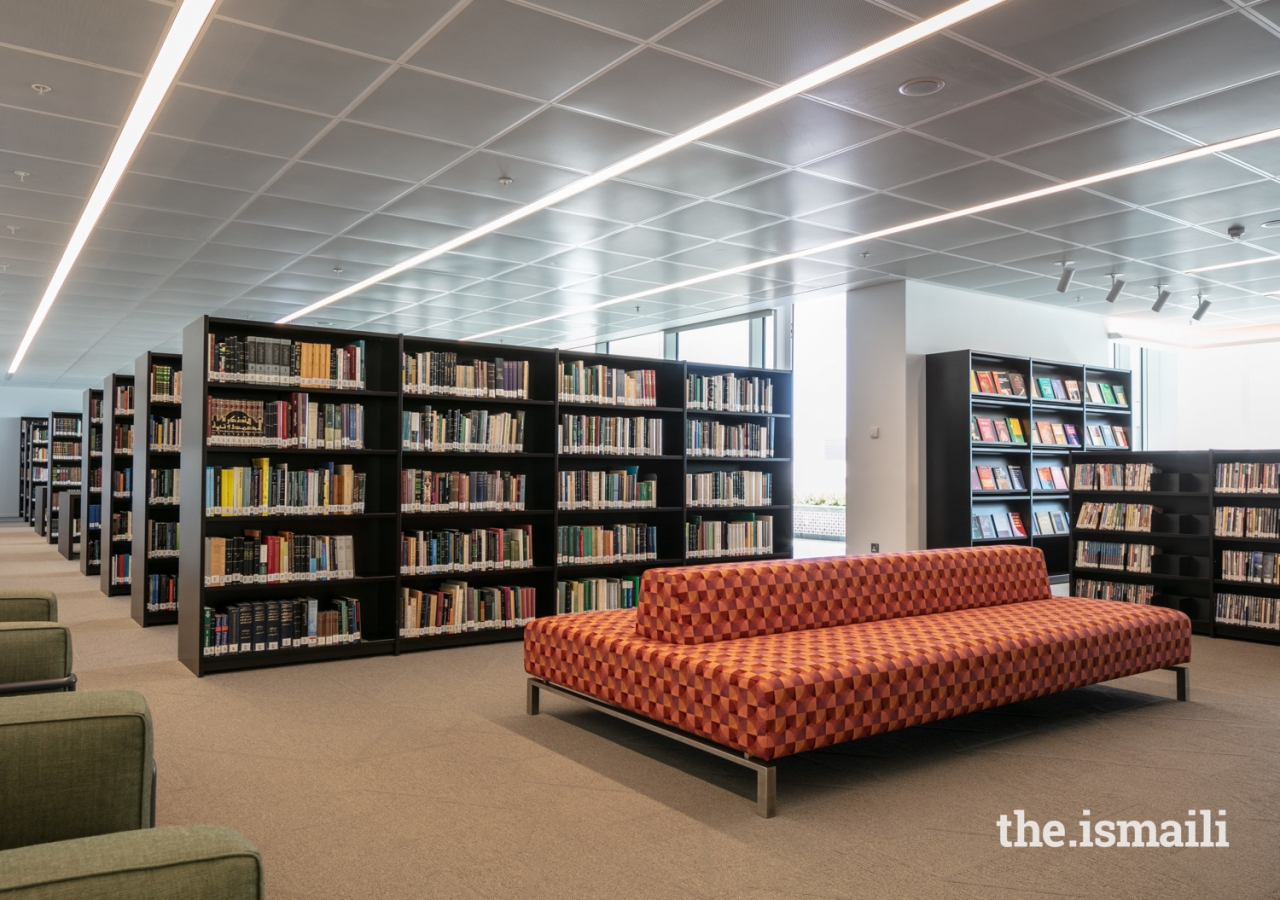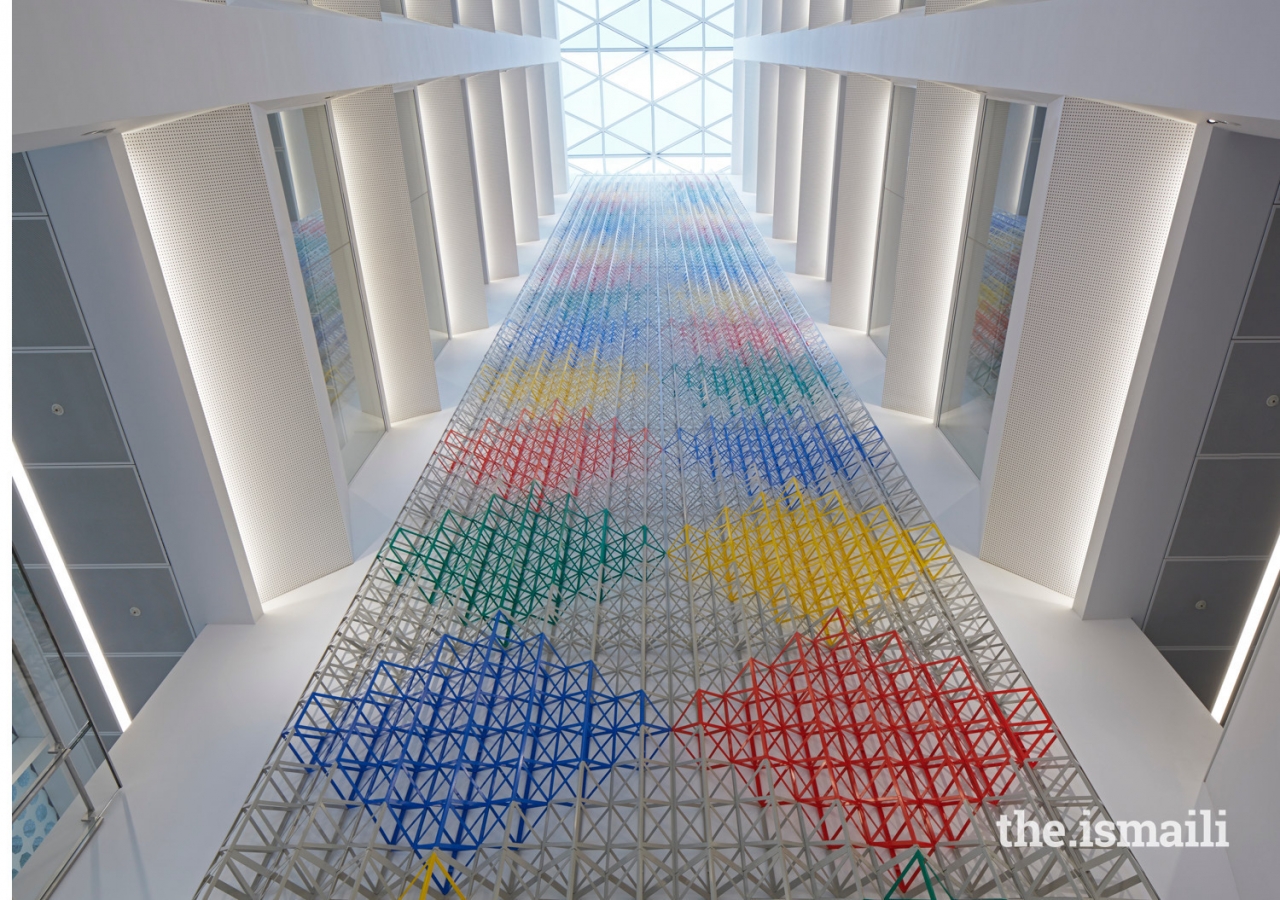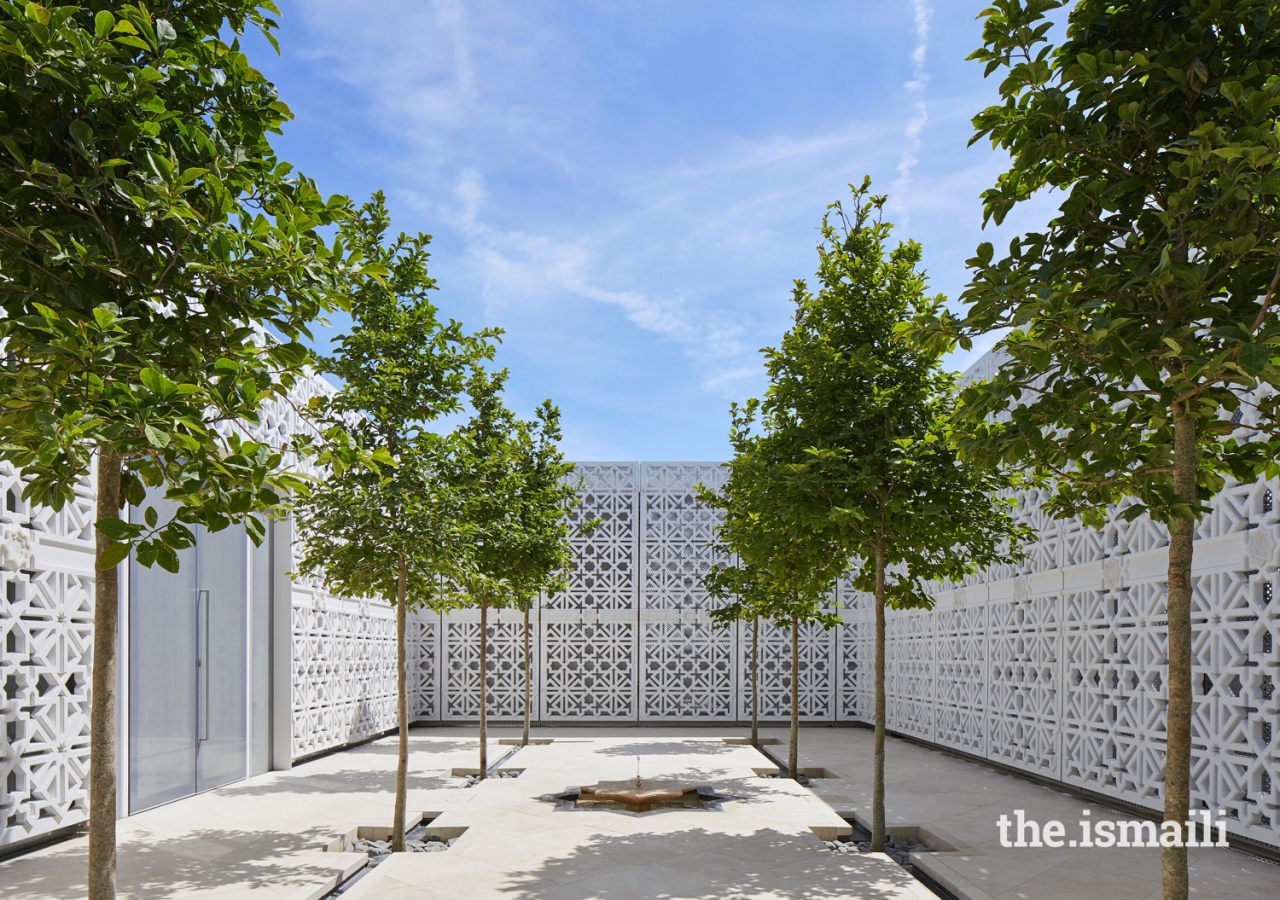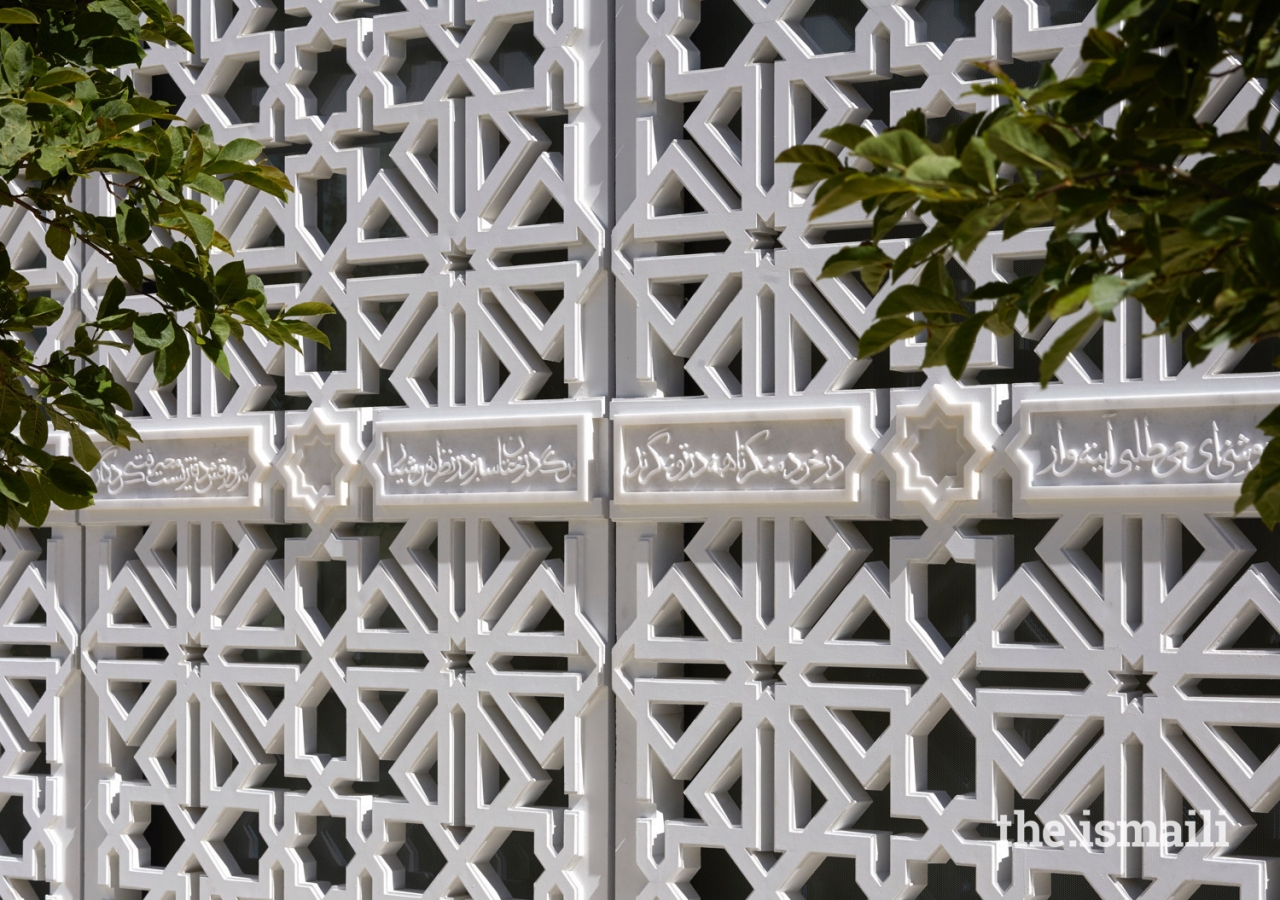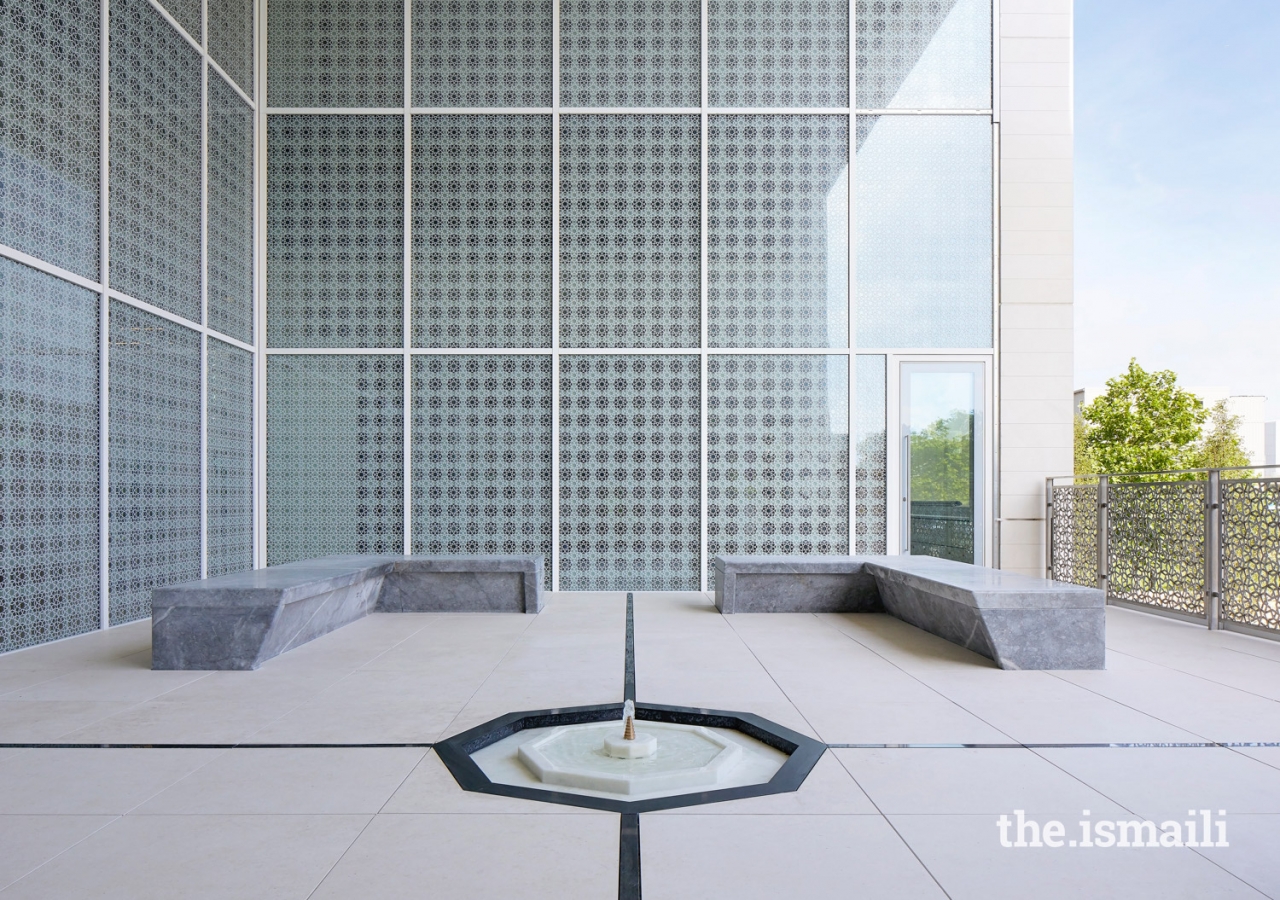At the heart of London’s Knowledge Quarter in King’s Cross stands the new permanent home for the UK institutions of the Ismaili Imamat and the Aga Khan Development Network. The recently opened Aga Khan Centre is located within the redevelopment of a 67-acre area at King’s Cross – one of the largest city-centre redevelopments in Europe, with a rich industrial and artistic past. The Aga Khan Centre comprises an academic facility, which incorporates teaching and learning spaces, the Aga Khan Library, London, as well as offices for The Institute of Ismaili Studies, the Aga Khan University Institute for the Study of Muslim Civilisations, and the Aga Khan Foundation UK.
Designed by Pritzker Prize winning architect Fumihiko Maki, the Aga Khan Centre is the third project that Professor Maki has worked on for the AKDN. The first two being the Delegation of the Ismaili Imamat in Ottawa and the Aga Khan Museum in Toronto.
Architecture and Design
A restrained modern exterior is executed with crisp precision while inside a tapestry of global materials and influences from Muslim cultures slowly unwinds. The motif of the eight-pointed star follows the light as the gardens, courtyards and terraces weave their way up the nine-storey atrium. Pockets of design elements inspired by geometry, the arabesque and mosaic, punctuate the building. Flush windows have been whitened with a pattern of ceramic fritting and are set into the limestone to catch the movement of light, creating an iridescence that unifies the external facade into a single beacon of white amidst the grey-scale architectural landscape of King’s Cross.
A ribbon pathway of green spaces connects to the public realm by way of a series of private courtyards, roof gardens and terraces, inspired by the plurality of architectural traditions from within Muslim cultures and societies.
Islamic Gardens at King’s Cross
Six gardens, courtyards and terraces in the building rise through the teaching and learning spaces on the first and second floors to the library on the third and fourth floors; offices from the fifth to eighth floors and meeting and special event rooms on the top floor. On the ninth floor, a garden, a courtyard and a terrace create a series of spaces that offer multiple vantage points over the city. These gardens are physically sculpted out of the building with five of them visible from outside, whilst the sixth – the Garden of Light – is private and secluded. Specific verses from the Holy Qur’an and from poets such as Ferdowsi, Jalal al-Din Rumi, Hafez, and Sa‘di Shirazi, as well as inscriptions from Nasir Khusraw, have been calligraphed and carved into stone panels in the Garden of Light on the ninth floor – these verses remind us of the long standing tradition of contemplation and scholarship in Muslim heritage.
There is a seventh, metaphorical garden at the heart of the building — the Atrium. The Aga Khan Centre is punctured by a shaft of light in the form of a six metre-wide atrium that connects all the residents of the building horizontally, vertically and diagonally. Beginning at the first floor and evoking a Central Asian, Middle Eastern, or Indian haveli, the meeting point at the base of the atrium becomes a connector — a space enabling chance encounters that might spark different conversations and collaboration, thereby leading to a broader and more pluralist discourse.
The Future
The ground floor of the building performs many functions. A public gallery will host exhibitions that weave together many thematic threads and interests of the institutions of the Ismaili Imamat and AKDN. Inspired by manuscripts in the Library’s special collections, some exhibitions will present artefacts connected with Muslim cultures and civilisations, while others will be related to the development work of the AKDN. These exhibitions will offer insights into important themes of our time and will showcase some of the lesser-known facets of Muslim cultures. Associated events and garden tours will also give visitors the chance to discover and explore the Aga Khan Centre. The opening exhibition in the gallery is entitled Gardens and Well-Being: An Islamic Perspective. This immersive, multi-sensory exhibition offers glimpses into the ways in which gardens have been imagined, designed and enjoyed in Islamic civilisation.
——
This article has been adapted from a feature piece written by Sikeena Karmali Ahmed, originally published in the Summer 2018 edition of the Ismaili UK Magazine.
The Aga Khan Centre is open for tours on a regular basis by appointment. To learn more, visit: www.agakhancentre.org.uk


